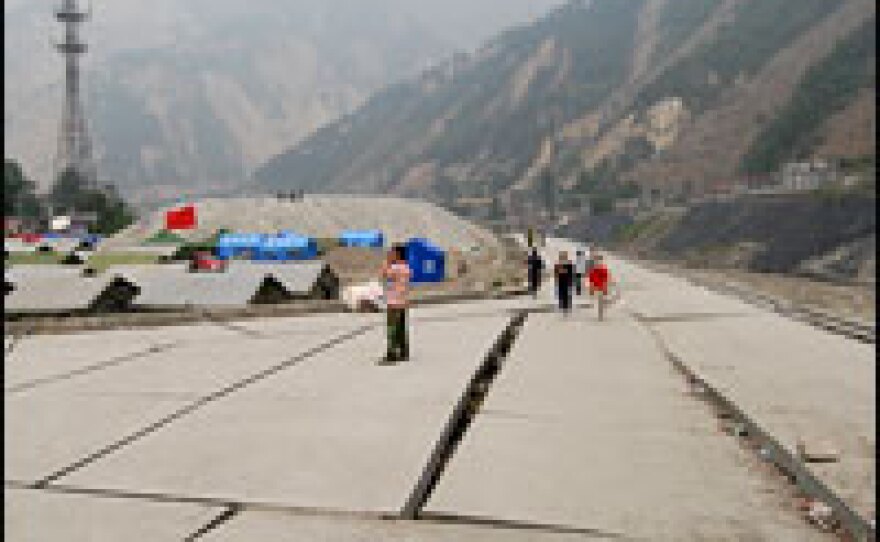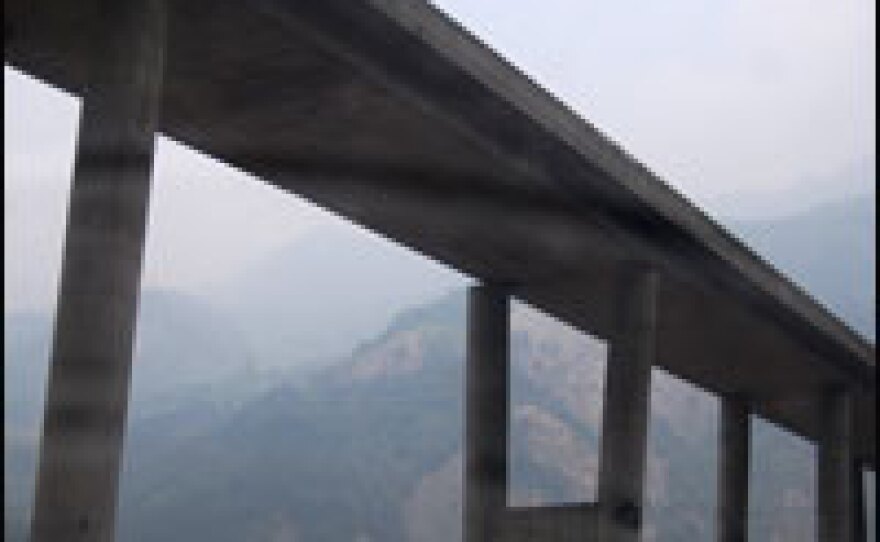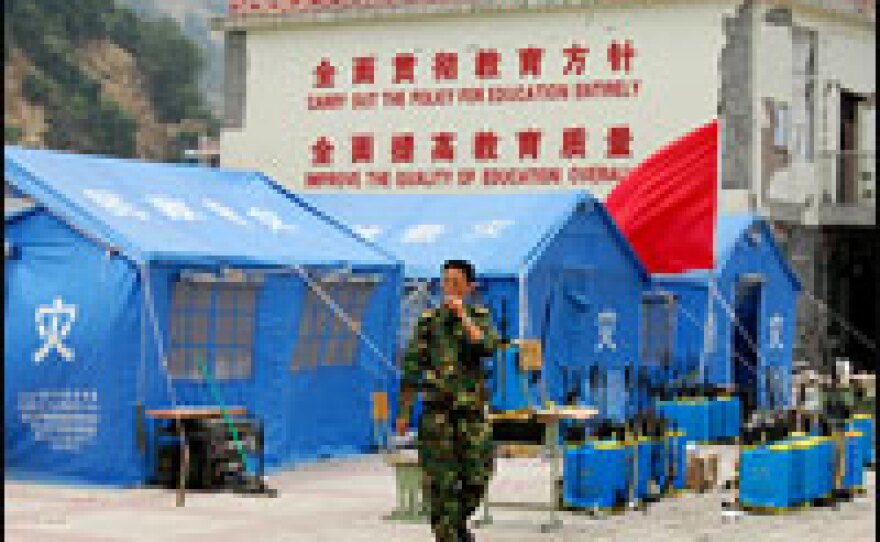



If you visit China, one of the most striking images is of construction cranes dominating the skyline. China is a country that knows how to build — and build fast.
Those will be essential skills in the region devastated by the May 12 earthquake. On Friday, the Chinese government set a target of rebuilding within three years. It will be quite a challenge: Whole villages, towns, even cities have been destroyed.
In the mountains in the county of Wenchuan, NPR's Melissa Block drove toward the town of Yingxiu.
Along the twisting mountain road, huge boulders had rolled down in rock slides. Huge trucks were completely crushed, flipped over as if they were Tonka toys. Cars were completely smashed by the rocks that flew off the mountains.
It was a long, slow drive. Just after the earthquake, the roads were so filled with boulders that rescue teams could not get through. Since then, the roads have been mostly cleared, but they still rattle people's nerves.
The original road buckled, the pavement split in two.
On every side, there was evidence of landslides that tore down the mountains last week.
It was a hazy day, so it was hard to see off into the distance, but the mountains all around were brown instead of green where huge landslides had sheared away their sides.
Chinese soldiers in green camouflage uniforms lined the road. Everywhere, there were also bright blue government-issued tents with the Chinese characters for "disaster relief" printed in white.
The paved road ended abruptly, with a steep dirt path leading to a bumpy, muddy road that work crews had carved into the bottom of a mountain so rescue teams could get in. A missing section of the elevated road — about 100 feet long — had crashed to the ground far below in a mangled mass.
The supports for the elevated road had cracks in them and were twisted in strange angles.
The Destination: Yingxiu
Finally, a sign said "Yingxiu Town." People from the Chongqing Disease Control Center walked into town.
As in so many villages, Yingxiu's children paid a terrible price during the earthquake. The town's middle and elementary schools collapsed, killing hundreds of children.
Zhang Jie Yu, 76, was in her makeshift shelter along the dusty road. The family had lashed a few sheets to wooden poles and salvaged some tiny chairs and a desk from the school right behind them.
"Thank you very much for coming all this way — and caring for us!" Zhang said. She said her 12-year-old granddaughter was crushed to death in her school.
Zhang said she can't let her go. She raised the girl herself. The night before her granddaughter died, her granddaughter clipped Zhang's fingernails. She was a very good student, always first in her class, the grandmother said.
Zhang said she wants her family to leave Yingxiu and settle somewhere better, but her husband is very stubborn and doesn't want to go.
Where Will the Survivors Go?
There have been reports that there were 10,000 people in Yingxiu before the earthquake, and maybe half of them survived. There were hardly any residents at all; it looked like a ghost town. The town has pretty much been wiped off the map.
On the way out of town, NPR met Tang Ming, who also was headed out of town. He fluttered his hands quickly from side to side.
He said he wouldn't stay in his town. Even walking on the soil in Yingxiu makes his heart tremble, he said.
A little farther down the road, there were sounds of life and work resuming.
Xiao Yuan Ming, 71, beat dried stalks of rapeseed with a bamboo thresher to shake the seeds loose. They'll be pressed to make canola oil. He just started back to work Thursday. He said he couldn't wait any longer: It's harvest time. He has to take care of the crops or they'll rot.
In Sichuan province, slowly life goes on.
Copyright 2022 NPR. To see more, visit https://www.npr.org. 9(MDAzMjM2NDYzMDEyMzc1Njk5NjAxNzY3OQ001))






